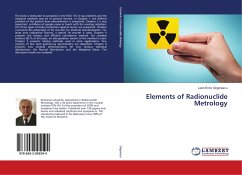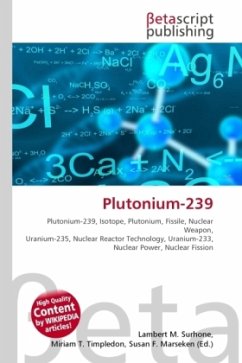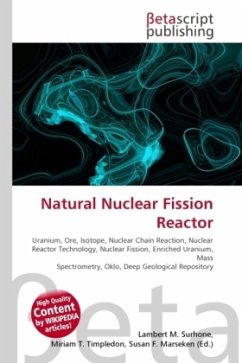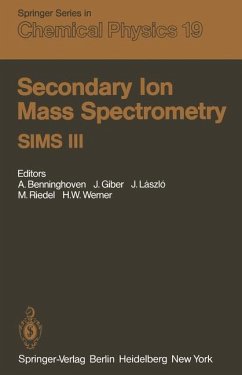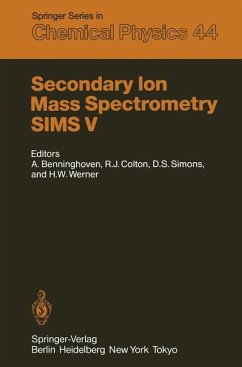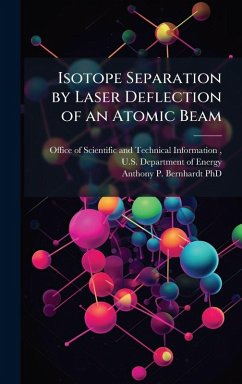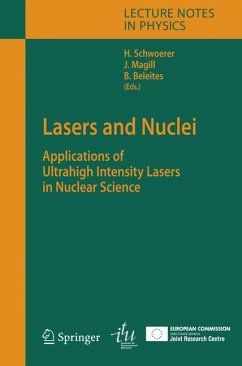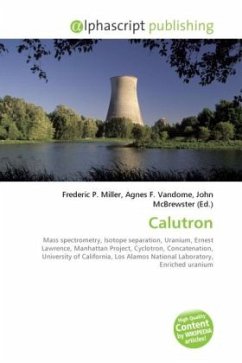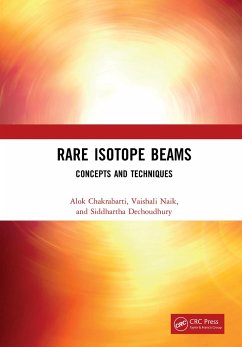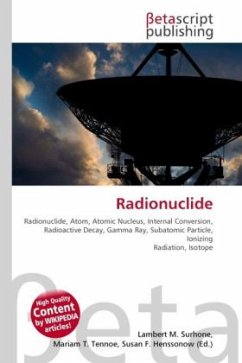
Radionuclide
Versandkostenfrei!
Versandfertig in 6-10 Tagen
30,99 €
inkl. MwSt.

PAYBACK Punkte
15 °P sammeln!
High Quality Content by WIKIPEDIA articles! A radionuclide is an atom with an unstable nucleus, which is a nucleus characterized by excess energy which is available to be imparted either to a newly-created radiation particle within the nucleus, or else to an atomic electron (see internal conversion) . The radionuclide, in this process, undergoes radioactive decay, and emits a gamma ray(s) and/or subatomic particles. These particles constitute ionizing radiation. Radionuclides may occur naturally, but can also be artificially produced. Radionuclides are often referred to by chemists and physici...
High Quality Content by WIKIPEDIA articles! A radionuclide is an atom with an unstable nucleus, which is a nucleus characterized by excess energy which is available to be imparted either to a newly-created radiation particle within the nucleus, or else to an atomic electron (see internal conversion) . The radionuclide, in this process, undergoes radioactive decay, and emits a gamma ray(s) and/or subatomic particles. These particles constitute ionizing radiation. Radionuclides may occur naturally, but can also be artificially produced. Radionuclides are often referred to by chemists and physicists as radioactive isotopes or radioisotopes, and play an important part in the technologies that provide us with food, water and good health. However, they can also constitute real or perceived dangers.



